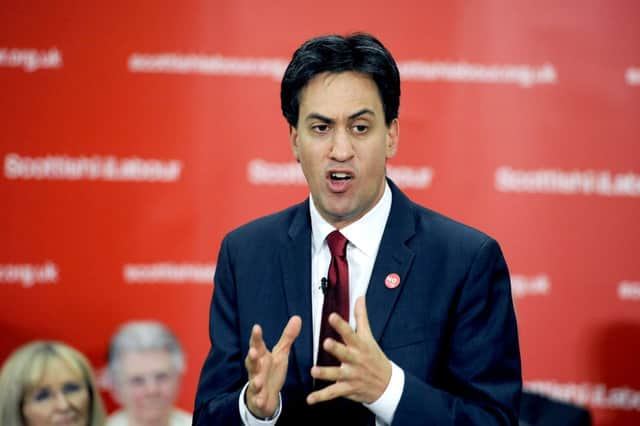Tom Peterkin: Ed Miliband move could see SNP attack


At first glance, it would seem to be the ideal ground for Labour to fight the general election. It was a bold, radical move which created a clear division between Labour’s vision for the UK and that of the Conservatives.
It played perfectly to Labour’s narrative that the Conservative Party is the friend and the defender of the super-rich and the privileged few. It also played into Labour’s desire to be seen as the party of wealth distribution, and would doubtless play well with the enormous number of voters who have difficulty understanding why we live in a society where the “haves” benefit from unimaginable wealth while the “have nots” struggle. And in a general election where Scotland looms large, the policy would resonate north of the Border.
Advertisement
Hide AdAdvertisement
Hide AdScrapping the non-dom rule would enable the Scottish Labour leader Jim Murphy to trumpet the policy in a similar way that he has done with Miliband’s mansion tax – Murphy has made great play of how Labour could use cash raised by the mansion tax in south-east England to pay for 1,000 Scottish nurses.
A similar argument could be made for the cash raised by Miliband’s decision to end an arrangement enjoyed by around 120,000 non-doms in Britain. The SNP’s commitment to full fiscal autonomy policy for Scotland would preclude “pooling and sharing” of resources in this way.
Defined as British residents who pay tax on their UK earnings but whose permanent home is outside the country, non-doms do not have to pay UK tax on foreign income as long as they don’t transfer it to the UK.
To begin with, Miliband’s move bore the hallmarks of a PR triumph with people like the Dragon’s Den entrepreneur Duncan Bannantyne tweeting his approval of the policy.
Needless to say, in this fevered election campaign, the Labour leader did not have everything his own way. Miliband’s claim that his policy change would raise hundreds of millions of pounds was almost immediately undermined when the Tories dug out an interview with shadow chancellor Ed Balls which appeared to dispute this. In January, Balls told BBC Radio Leeds that abolishing the “whole status … probably ends up costing Britain money because there will be some people who then leave the country.”
The existence of Balls’s interview allowed the Conservatives to present their idea another example of Labour’s chaotic economic thinking.
But one suspects that the left-leaning SNP may find it a little more difficult to trash Miliband’s move.
FOLLOW US
SCOTSMAN TABLET AND MOBILE APPS